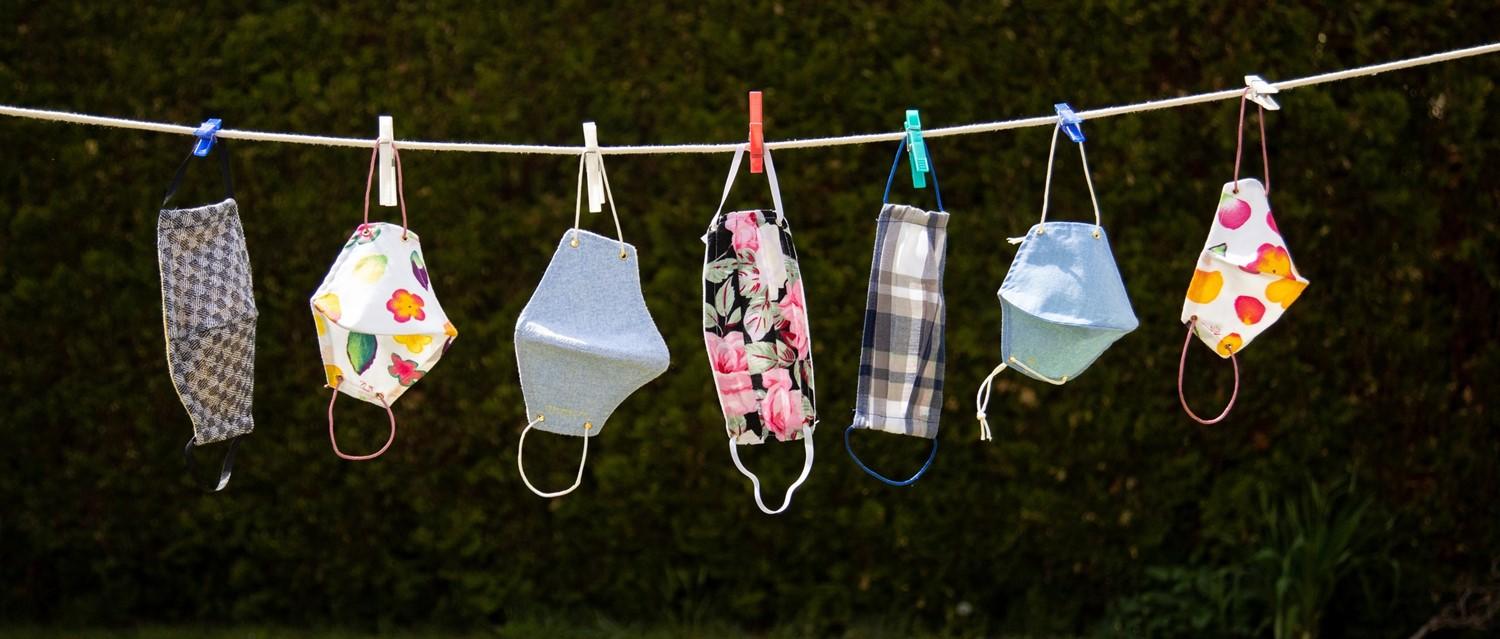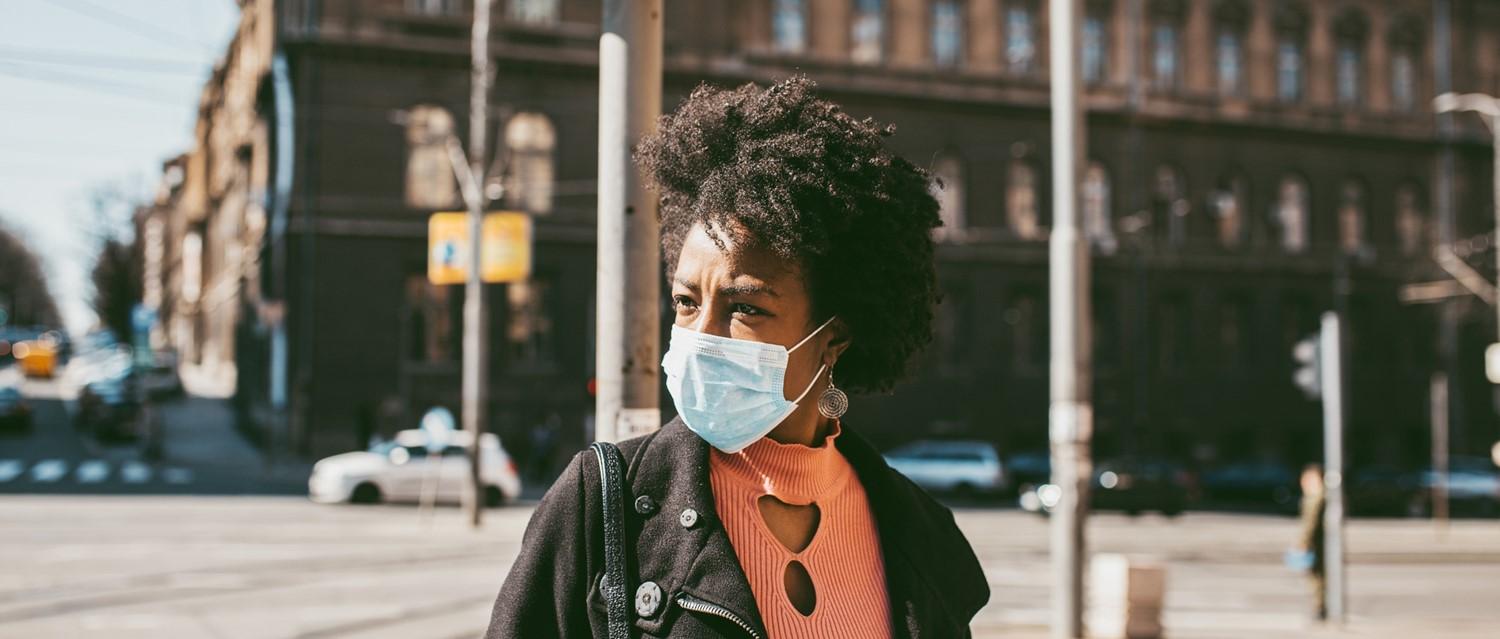
How to choose the right face mask for you
Peer reviewed by Dr Sarah Jarvis MBE, FRCGPLast updated by Milly EvansLast updated 10 Dec 2020
- DownloadDownload
- Share
Face masks and coverings have become a familiar sight over the last year as we all work together to bring the coronavirus pandemic under control. But with so many on the market, are any face masks better than others and what should you be looking for in a face mask?
Sponsored
Sonovia
Supported by Sonovia, the creator of the SonoMask Active 2-Way Protection face mask with Active Neutralizing Technology. Patient retains sole control of the content.

In this article:
Most of us are now donning a mask when we're out and about or out at work. Shops, public transport, GP surgeries and other indoor venues all require us to cover our mouth and nose to avoid passing COVID-19 on to other people.
Importantly, we now know that people infected with COVID-19 can be infectious for up to two days before they develop symptoms. What's more, not every person who has COVID-19 experiences symptoms. People in both of these groups can unknowingly pass it on.
By now, you might have some thoughts about what you like in a face mask, but if you're undecided or you're interested in what's on the market, we've rounded up some of options available to you. From N95 and disposable masks through to high-tech fabric offerings such as Sonovia's SonoMask, we run through the benefits and pitfalls of each.
Continue reading below
Are fabric face masks effective?
There are plenty of fabric face masks on the market. They're now available at most supermarkets, pharmacies and online. But are they any good?
The benefit of lots of companies producing their own face mask is that you can find the right fit, shape and design for you. The drawback is that it gets confusing when you're just looking for something which will do the job.
Fabric masks should have at least two layers of a tightly woven but breathable fabric to be effective. Which? has created its own round-up of the best fabric face masks on the market.
Using them safely
Effective homemade face coverings are about more than how they're made and how they fit. With a standard face covering, it's essential to:
Take it off carefully (touching only the straps) after every use; then
Put it in a container like a sealed plastic bag; and
Wash it after every time you've used it - ideally it should be machine washed at 60°C.
Otherwise you risk contaminating your hands and then transferring virus to your eyes, nose or mouth, where they can get into your system. The fabric of some fabric masks, such as Sonovia's SonoMask, uses technology designed to neutralise viruses, preventing the viruses from being picked up when you touch the mask. This means you don't need to wash your mask after every use.
Saving the planet
One of the obvious benefits of using a reusable fabric face mask is that you are reducing waste. Whilst disposable surgical masks can and should only be used once before being thrown away, you can use fabric face masks many times before retiring them.
With people wearing masks so often, millions of disposable, non-recyclable masks are being thrown away. And with the ongoing global climate crisis, picking a reusable mask makes a significant difference to the environment.
Meeting your needs
Other face coverings include a clear panel in the front which makes your mouth visible, which can be especially helpful for people who rely on lip reading or just to convey emotions more easily whilst wearing a mask.
But when picking a mask, avoid those with valves as they'll protect you as the wearer but not those around you which defeats the purpose of us all wearing masks.
SPONSORED
Sonovia's SonoMask is a reusable fabric mask with a difference. Its fabric's antiviral properties mean that it neutralises 99% of the COVID-19 virus and filters 98% of particles at 5 microns in size.
These antiviral properties mean that, unlike other fabric masks, the mask only needs to be washed once a week and maintains its effectiveness for up to 55 washes - so for more than a year of use.
Dr Sarah Jarvis, clinical director of Patient.info, comments on her experience of wearing the SonoMask: "I found it really comfortable to wear and it fitted snugly over my nose. Having mostly worn masks with ear straps, it took a bit of time to get used to wearing one with straps which went round the back of my head, but they were easy to adjust and in fact made it more comfortable to wear for any length of time."
What about homemade face masks?
If you've been hard at work with a needle and thread or at your sewing machine making your own masks, you can be reassured that homemade masks are effective in preventing you spreading the virus to others. That is, as long as they're made correctly.
Homemade face masks need to be made from multiple layers of tightly woven non-stretch fabric to avoid droplets escaping through the material. They can also reduce aerosol spread, even though aerosol particles are much smaller than droplets. It's important to get a good fit which won't slip down your face or ride up and irritate your eyes - there are plenty of sewing patterns available online. One of the big benefits of making your own masks is that you can customise them to your own measurements, preferred shape and other requirements, like including a nose wire to prevent your glasses steaming up.
But making masks can be time-consuming and isn't accessible for everyone. Also, the masks haven't gone through any testing, which pre-made masks by some manufacturers have.
Patient picks for COVID-19

Chest and lungs
How to cope with a fear of leaving lockdown
As the English lockdown rules change slightly and we are able to begin cautiously resuming some aspects of normal life, it's hardly surprising that some of us feel a little bit worried about what lies ahead. But while it's sensible to be cautious and stick to medical advice, what happens if our anxiety becomes overwhelming?
by Gillian Harvey

Chest and lungs
COVID-19
COVID-19 is an infectious disease caused by a virus that was first identified in December 2019 in Wuhan, China. This leaflet deals with the symptoms, causes and treatment of COVID-19.
by Dr Doug McKechnie, MRCGP
Continue reading below
Surgical face masks
Disposable surgical face masks are one of the cheapest options on the market. They're the face masks we're used to seeing doctors and surgeons wearing because, when worn correctly, they can provide some droplet protection for the wearer as well as preventing them from spreading the virus. The World Health Organization recommends surgical face masks only for those in certain risk groups including people who:
Are over 60 years old.
Have underlying health conditions.
Are feeling unwell.
Are caring for an ill family member or friend.
Medical or surgical masks are essentials for health workers. At the start of the pandemic when there were greater shortages of PPE, stocks of surgical masks had to be reserved for those in health and care. This is still the case in much of the USA. For UK health workers, it's easier to get hold of these now, but for most of the public, fabric face masks are a better recommendation.
You can only use surgical face masks once before they need to be thrown away - don't try to get extra uses out of them by wearing them over and over. You could be risking your health by doing so. It's critical that you dispose of them safely too, as they could become a biohazard if they're carrying virus droplets.
N95 masks
Members of the public shouldn't wear N95 respirator masks, according to many health agencies like the CDC. These include masks used by healthcare professionals in hospitals and other environments where there's a high risk of aerosol transmission, to protect both the wearer and the patients against the spread of infection.
Healthcare workers are trained in how to put on and wear N95 masks correctly, which the vast majority of the public won't have been. This means that by using an N95 mask you could use it incorrectly. This could actually mean you're putting yourself and those around you at risk, as many N95 masks only protect the wearer and not those around them.
N95 masks, particularly those with valves, can be uncomfortable when worn for long periods of time, which makes it more likely that you'll end up touching your face to adjust it. In addition, there are still shortages of N95 masks, so they should be kept for healthcare staff exposed to the highest levels of the virus.
Continue reading below
So what should I choose?
The type of mask you pick ultimately depends on your needs and wants. If you're looking for something simple which will prevent you spreading COVID-19, a well-made cloth mask will do the trick. If you want the reassurance of a mask with certain properties, like an antiviral fabric, or which has gone through extra testing, you might want to consider masks with a bit more scientific backing like the SonoMask.
If you're in a risk group or caring for someone in a risk group, surgical masks may be a better option. And for those working in healthcare, you'll have received your own guidelines on PPE and wearing surgical or N95 masks and visors.
Article history
The information on this page is peer reviewed by qualified clinicians.
10 Dec 2020 | Latest version

Ask, share, connect.
Browse discussions, ask questions, and share experiences across hundreds of health topics.

Feeling unwell?
Assess your symptoms online for free